Needonomics School of Thought (NST), inspired by the timeless wisdom of the Bhagavad Gita, is not only an economic model but also a philosophy for meaningful existence. It teaches that prosperity without morality, power without purpose, and progress without compassion lead only to imbalance and suffering.
In today’s world of economic expansion and moral decline, where materialism often overshadows mindfulness, there is a growing need to balance prosperity with purpose. The Needonomics School of Thought (NST) offers a path to achieve this balance. Deeply inspired by the eternal wisdom of the Bhagavad Gita, Needonomics represents an applied philosophy that transforms economics into a humane and ethical discipline. It provides a way to M.O.V.E. — an acronym for Morality, Opulence, Victory, and Empowerment — towards meaningful existence.
To move ahead wisely in our creative choices and decision-making, we must cultivate a clear understanding of the NST. It is not merely an economic framework but a value-based approach to life that harmonizes wealth with wisdom, consumption with conscience, and growth with goodness. Needonomics, when practiced as Applied Gita, becomes a spiritual and ethical compass guiding individuals, institutions, and nations toward sustainable and inclusive prosperity.
1. Essence of Needonomics: From Greed to Need
The foundation of the Needonomics School of Thought rests on a simple yet profound idea — economics of needs rather than greed. In a consumer-driven world, where the race for accumulation defines success, Needonomics calls for moderation and mindfulness. It invites us to distinguish between needs that sustain life and wants that enslave it.
Professor Goel’s Needonomics aligns with the Gita’s teaching of Nishkam Karma Yoga — performing one’s duties selflessly without attachment to results. Just as Lord Krishna advised Arjuna to act with detachment and righteousness, Needonomics urges economic agents — consumers, producers, and policymakers — to act with integrity, efficiency, and social responsibility.
It transforms the pursuit of wealth into a disciplined and ethical activity guided by purpose, rather than possessions. In this sense, Needonomics represents the application of Gita principles in the economic realm — using spirituality to inform everyday choices, ensuring that our decisions lead to harmony rather than harm.
2. Morality: The First Step in the M.O.V.E. Framework
The first element of M.O.V.E. — Morality — forms the moral foundation of Needonomics. In a society dominated by corruption, exploitation, and manipulation, morality is often seen as an outdated virtue. Yet, as the Gita teaches, Dharma (righteous conduct) is the sustaining force of all creation. Without Dharma, no economic or social system can remain stable.
As per the Needonomics School of Thought, moral capital is the most valuable form of wealth. It builds trust in governance, honesty in business, and harmony in relationships. Decision-making, therefore, must be based on moral clarity — on what is right, not merely what is profitable.
A moral economy ensures that growth does not come at the cost of justice and that innovation is guided by conscience. Morality, in this context, is not restrictive; it is liberating — it frees the human mind from greed and guilt, fostering creativity and compassion.
3. Opulence: Prosperity with Purpose
The second pillar of M.O.V.E.- Opulence is often misunderstood as mere accumulation of wealth. In Needonomics, opulence means prosperity with purpose — an abundance that is both material and spiritual. The Bhagavad Gita reminds us that true wealth lies in contentment (Santosham param sukham — contentment is the greatest happiness).
Needonomics calls for value-based production and need-oriented consumption. It promotes ethical entrepreneurship that creates wealth without exploiting nature or people. When morality governs opulence, prosperity becomes sustainable and inclusive.
Thus, opulence under Needonomics is not the privilege of a few but the collective joy of many — a balanced prosperity that respects both human dignity and ecological limits. It is an opulence that enriches the soul as much as the society.
4. Victory: Success through Righteous Means
The third dimension of M.O.V.E.- Victory, refers to success achieved through righteous means. In today’s competitive world, victory is often equated with dominance, power, or material gain. The Gita, however, defines victory as the triumph of truth and righteousness. Lord Krishna told Arjuna that real victory lies not in defeating others, but in overcoming one’s own ignorance, ego, and greed.
In the Needonomics framework, ethical victory replaces exploitative success. For individuals, it means achieving goals with integrity. For organizations, it means creating value without corruption. For nations, it means economic growth that uplifts the poor and protects the environment.
Victory in Needonomics is the triumph of need over want, ethics over ego, and balance over excess. It brings inner peace and societal harmony, turning competition into cooperation and conflict into constructive progress.
5. Empowerment: Enlightened Freedom
The final pillar of M.O.V.E. — Empowerment — signifies the outcome of applying Needonomics. True empowerment is not just economic or political; it is spiritual and intellectual freedom. It is the ability to govern oneself with awareness, discipline, and compassion.
The Gita-inspired Needonomics emphasizes self-governance (Swa-Rajya) — mastery over one’s desires and decisions. When individuals learn to manage their needs wisely, they become self-reliant, productive, and attain inner peace. Empowerment in this sense is not power over others but power within oneself.
At the societal level, Needonomics promotes empowerment through education, ethical entrepreneurship, and equitable access to resources. It encourages innovation rooted in values and policies guided by wisdom. Empowered citizens thus become agents of moral, economic, and environmental transformation.
6. Putting Needonomics into Practice
Needonomics as Applied Gita is not just a theoretical ideal — it offers practical guidance across sectors:
- In Governance, it promotes transparency, accountability, and welfare guided by wisdom. It aligns the 3Fs — functions, functionaries, and finances — to serve people’s needs efficiently, especially at the grassroots level through Panchayati Raj Institutions.
- In Business, it advocates ethical profit-making, socially responsible production, and fair trade practices.
- In Education, it shifts focus from information to wisdom, from rote learning to value-based living.
- In Daily Life, it inspires individuals to consume less, conserve more, and cultivate gratitude — practicing simple living and high thinking.
When these principles guide collective behavior, societies begin to move with purpose — balancing morality with prosperity, ethics with ambition, and empowerment with empathy.
Conclusion:
Needonomics School of Thought (NST), inspired by the timeless wisdom of the Bhagavad Gita, is not only an economic model but also a philosophy for meaningful existence. It teaches that prosperity without morality, power without purpose, and progress without compassion lead only to imbalance and suffering.
By adopting Needonomics as Applied Gita, we move beyond the obsession with material success toward moral, spiritual, and emotional fulfillment. It is through this journey that individuals and societies can truly MOVE — with Morality, Opulence, Victory, and Empowerment — toward peace, prosperity, and purpose.
NST emphasizes, Needonomics is the art of living wisely — balancing needs with wants, wealth with wisdom, and freedom with responsibility. It is, indeed, the applied path of the Gita — a timeless guide for creating a just, joyful, and sustainable world.
References :
1. Goel, M. M (2025, Sep 13). Raising Street SMART Children: A Needonomics Call to Praise Efforts over Intelligence. https://acadnews.com/raising-street-smart-children-a-needonomics-call-to-praise-efforts-over-intelligence/
2. Goel, M. M (2025,August 26) . Making Markets Moral: Needonomics in the Age of AI
https://acadnews.com/making-markets-moral-needonomics-in-the-age-of-ai/ with audio-podcast
3. Goel, M.M (2025, August 10). From Need to Nurture: A Needonomic Roadmap for Revitalizing Rural India https://acadnews.com/from-need-to-nurture-a-needonomic-roadmap-for-revitalizing-rural-india/
4. Goel, M.M (2025,June 06). Three D’s of Sustainable Success in Needonomics Language
5. Goel, M.M (2025,May 07). Reinterpreting Dr. B.R. Ambedkar through the Lens of Needonomics May 07,2025
6. Goel, M.M (2025,April 08). Needonomics: A Panacea for Society’s Ills
https://acadnews.com/needonomics-a-panacea-for-societys-ills/ April 08,2025
7. Goel, M. M.( 2025, March 03). Consumption of Food in Needonomics Framework: A Sustainable Path to Health and Equity ,https://acadnews.com/consumption-of-food-in-needonomics-framework-a-sustainable-path-to-health-and-equity/
8. Goel, M. M.( 2025, February 17). Viksit Bharat @ 2047: Gita-Inspired Needonomics for Overcoming Challenges, Seizing Opportunities & Charting the Roadmap [Audio podcast]. https://acadnews.com/viksit-bharat-2047-gita-inspired-needonomics-for-overcoming-challenges-seizing-opportunities-charting-the-roadmap/
9. Goel, M. M. ( 2025, January 15).Ethical Pathways for IMF and World Bank Prosperity Sharing: Niti Gun Insights under the Needonomics Framework [Audio podcast]. AcadNews. https://acadnews.com/ethical-pathways-for-imf-and-world-bank-prosperity-sharing-niti-gun-insights-under-the-needonomics-framework/ with audio podcast
10. Goel, M. M. (2024, December 16). Vikshit Bharat: Bridging Dattopant Thengdi’s vision with Needonomics for inclusive growth [Audio podcast]. AcadNews. https://acadnews.com/vikshit-bharat-bridging-dattopant-thengdis-vision-with-needonomics-for-inclusive-growth/
11. Goel, M. M. (2024, November 26). Needonomics for teachers and researchers in economics part 3 [Audio podcast]. AcadNews. https://acadnews.com/needonomics-for-teachers-and-researchers-in-economics-part-3/
12. Goel, M. M. (2024, October 16). Needonomics for teachers and researchers in economics part 1 [Audio podcast]. AcadNews. https://acadnews.com/needonomics-for-teachers-and-researchers-in-economics-part-1/
13. Goel, M. M. (2024, October 2). Lessons of Needonomics for service sector in present times [Audio podcast]. AcadNews. https://acadnews.com/lessons-of-needonomics-for-service-sector-performance-in-present-times
14. Goel, M. M. (2024, September 18). Revitalizing Indian manufacturing with Needonomics: Leveraging labor for Viksit Bharat [Audio podcast]. AcadNews. https://acadnews.com/revitalizing-indian-manufacturing-with-needonomics-leveraging-labor-for-viksit-bharat/
15. Goel, M. M. (2024, September 7). Needonomics: Implications for agriculture [Audio podcast]. AcadNews. https://acadnews.com/needonomics-and-indian-agricultural-policy-a-holistic-approach-to-farmers-well-being/
16. Goel, M. M. (2024). Needonomics: Balancing “how” and “why” in an era of greedonomics and AI [Audio podcast]. AcadNews. https://acadnews.com/needonomics-balancing-how-and-why-in-an-era-of-greedonomics-and-ai/
17. Goel, M. M. (2024, August 17). Needonomics and its implications for the Indian systems of medicine: A path to sustainable health [Audio podcast]. AcadNews. https://acadnews.com/needonomics-and-its-implications-for-the-indian-systems-of-medicine-a-path-to-sustainable-health/
18. Goel, M. M. (2024, August 5). Needonomics: Implications for the 16th Finance Commission of India [Audio podcast]. AcadNews. https://acadnews.com/needonomics-implications-for-the-16th-finance-commission-of-india/
19. Goel, M. M. (2024, July 18). Needonomics: Implications for Needo-governance in a democratic world [Audio podcast]. AcadNews. https://acadnews.com/needonomics-implications-for-needo-governance-in-a-democratic-world/
20. Goel, M. M. (2024, July 8). Needonomics: The key to thriving in a knowledge-based economy [Audio podcast]. AcadNews. https://acadnews.com/needonomics-the-key-to-thriving-in-a-knowledge-based-economy/
21. Goel, M. M. (2024, June 18). Needonomics: Implications for traders and exporters in a changing economic scenario [Audio podcast]. AcadNews. https://acadnews.com/needonomics-implications-for-traders-and-exporters-in-a-changing-economic-scenario/
22. Goel, M. M. (2024, June 4). Needonomics: Implications for distributors in changing economic scenario [Audio podcast]. AcadNews. https://acadnews.com/needonomics-implications-for-distributors-in-changing-economic-scenario/
23. Goel, M. M. (2024, April 22). Needo-consumption: Implications for global consumers [Audio podcast]. AcadNews. https://acadnews.com/needo-consumption-implications-for-global-consumers/
24. Goel, M. M. (2024, April 9). Needonomics: SWOC analysis [Audio podcast]. AcadNews. https://acadnews.com/needonomics-swoc-analysis/
25. Goel, M. M. (2024, March 11). Unveiling the perils of greedonomics [Audio podcast]. AcadNews. https://acadnews.com/unveiling-the-perils-of-greedonomics/
26. Goel, M. M. (2024, February 26). Needonomics: Queen of social sciences for global economy [Audio podcast]. AcadNews. https://acadnews.com/needonomics-queen-of-social-sciences-for-global-economy/
Disclaimer: The views expressed in this article are those of the author solely. TheRise.co.in neither endorses nor is responsible for them. Reproducing this content without permission is prohibited.
About the author
Prof. Madan Mohan Goel, Former Vice Chancellor and Propounder of Needonomics School of Thought.

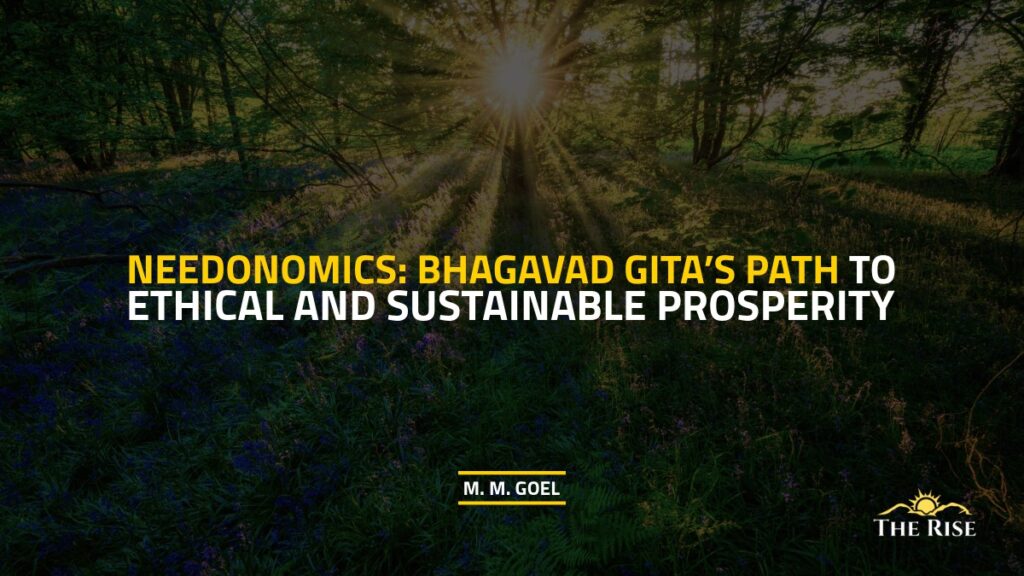


























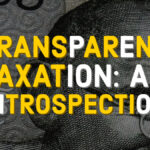




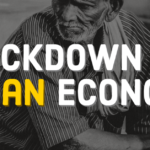

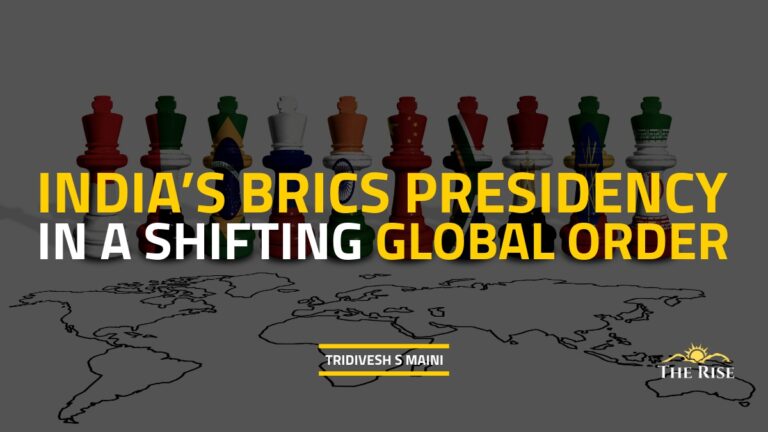
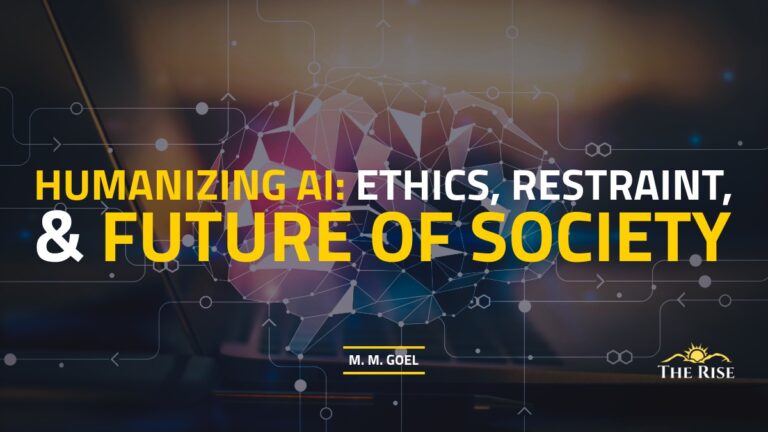

Very nice, great efforts, sir your inspirations always inspire me, and my family.